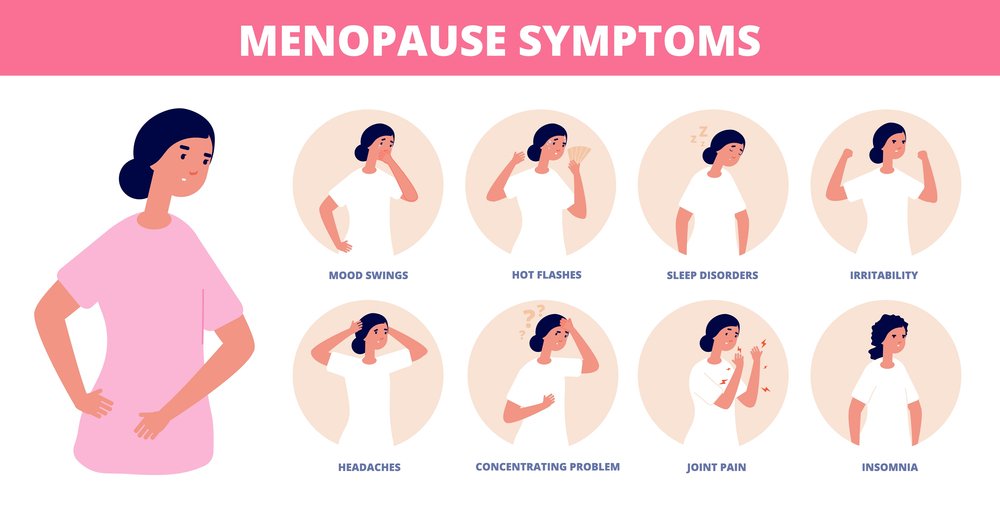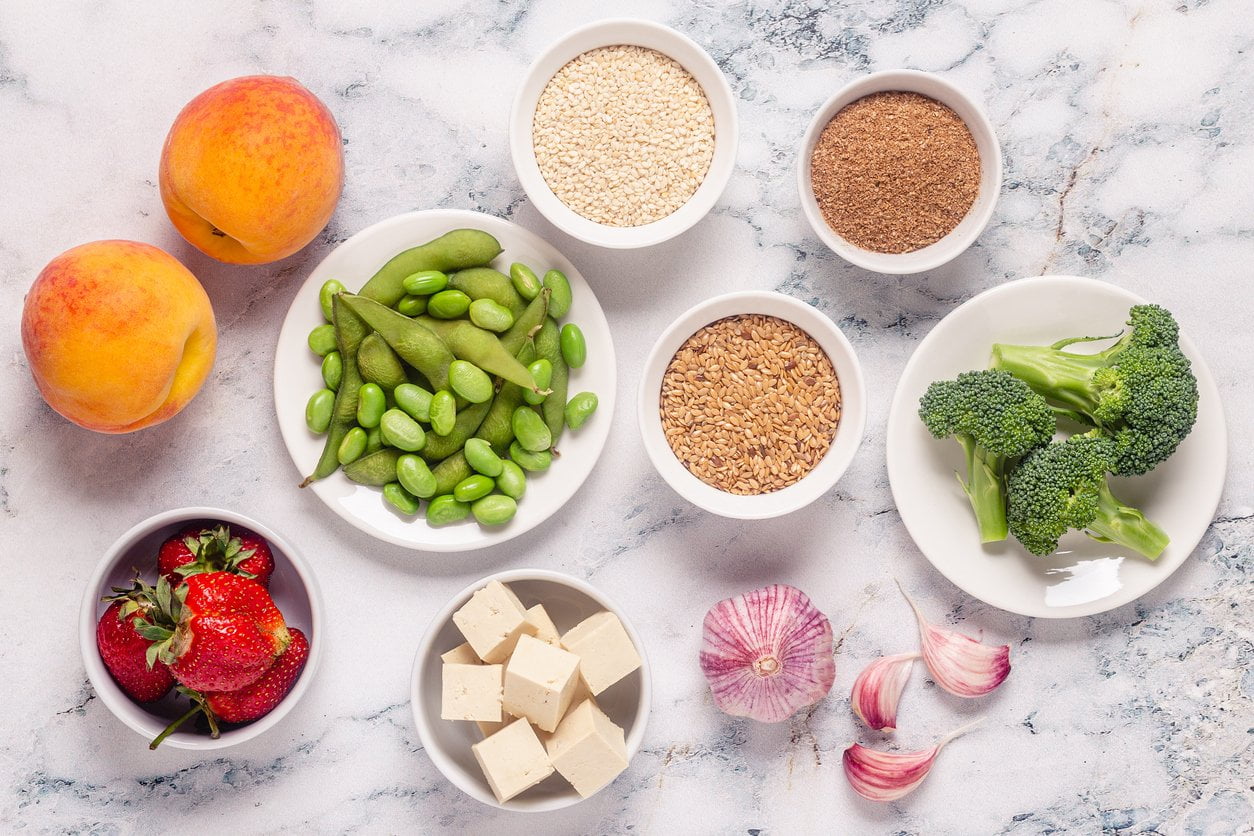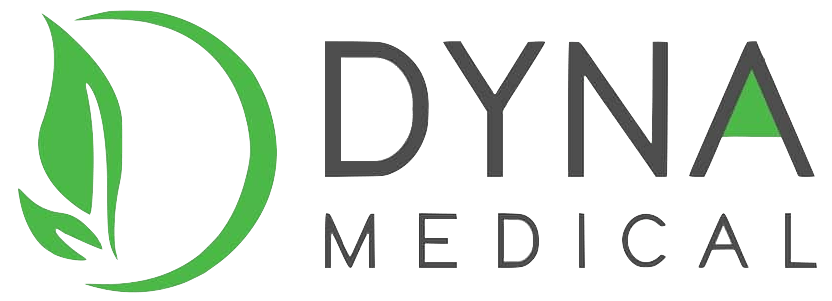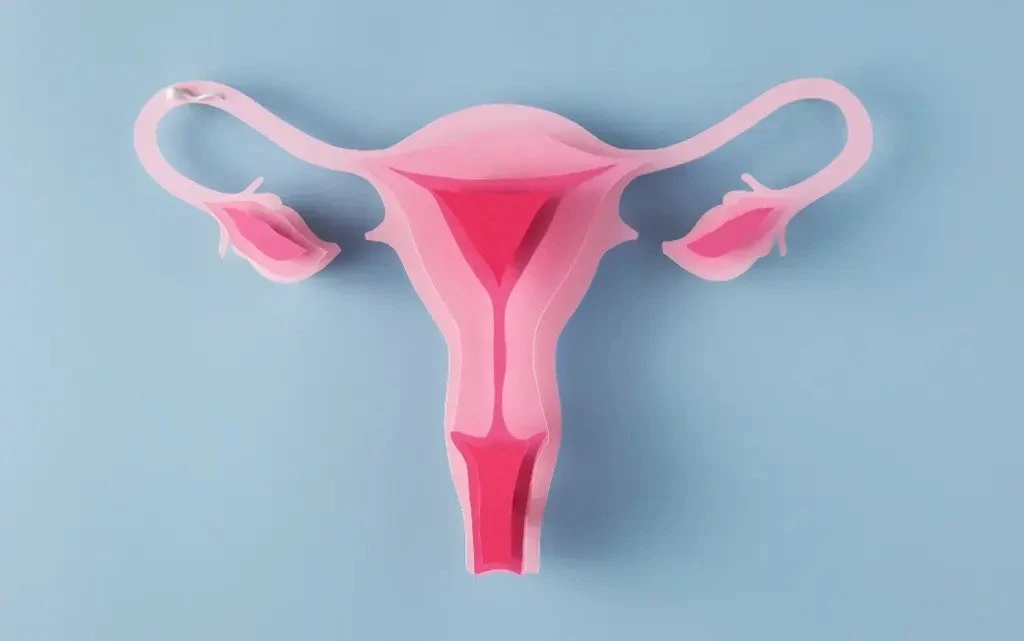All women experience menopause naturally as a biological process, marking the end of a woman’s menstrual cycle. There are several suggested ways to navigate menopausal symptoms, which can significantly improve a woman’s quality of life (QoL) in later stages.
The Cycle of Changes and Menopausal Symptoms
The World Health Organization (2022) defines menopause as the phase of the menstrual cycle that occurs after 12 consecutive months without a period, with no physiological or pathological causes. It is a normal part of aging. As women age, the production of reproductive hormones like estrogen, produced by the ovaries, decreases. This is because the reproductive cycle starts to decelerate and eventually comes to a halt (2). Consequently, the hormone estrogen, which plays a vital role in the body, also has an impact on the use of calcium and the regulation of cholesterol levels in the blood.
The menopausal phase occurs gradually in three stages: perimenopause, menopause, and post-menopause (2). Perimenopause typically begins in the late 40s and is characterized by a reduction in estrogen production. Women may still have their periods, but they may become irregular. After a year of menstrual absence, this phase is marked as menopause, and menopausal symptoms are highly likely. During the post-menopause phase, symptoms might either reduce or continue (2). On average, women begin menopause between the ages of 45 and 55 (1).

Fig 1: Figure shows the symptoms of menopause
Integrating Lifestyle Changes during Menopause Phase
Navigating menopausal symptoms can be relatively easy with diligent attention to our health. We can begin as early as perimenopause by addressing these uncomfortable symptoms through lifestyle interventions and, in some cases, natural supplements may be necessary. One effective method to alleviate these symptoms is by maintaining a healthy body weight. Due to hormonal changes, aging, a sedentary lifestyle, or genetic factors, some individuals may experience weight gain during menopause (3). Therefore, it is advisable to aim for a 5-10% reduction in body weight if your body mass index (BMI) is above the normal range to manage menopausal symptoms.
Studies show that reducing body weight can eliminate hot flashes and night sweats (3). Simultaneously, incorporating regular physical exercise into your routine can help you achieve your desired body weight. Try to allocate at least 30 minutes every day to engage in exercises like Pilates-based programs. Regular exercise can boost energy levels, enhance metabolism, strengthen bones and joints, reduce stress, and promote better quality sleep at night (3)

Fig 2: Food choices high in phytoestrogens
Opting Nutritional Choices through Phytoestrogen-rich Foods
From a nutritional perspective, making the right food choices during menopause can help alleviate symptoms. Hormonal changes during this time can weaken bones and lead to joint pains. Foods rich in calcium and Vitamin D are believed to be beneficial for bone health. Studies have shown that adequate vitamin D intake during post-menopause can reduce the risk of hip fractures (3). Additionally, consuming foods rich in phytoestrogens, which mimic the effects of estrogen, can benefit women. Low estrogen production during menopause can be increased by incorporating moderate amounts of whole foods high in phytoestrogens, such as tempeh, tofu, berries, beans, cabbage, spinach, and more (3).
Research has also linked the consumption of foods high in refined sugars and processed ingredients by menopausal women to depression and poor bone health. This association may be attributed to these unhealthy choices replacing the nutrients needed by the body (3). Lastly, staying well-hydrated is crucial to prevent dryness and bloating and to help manage appetite better (3).
In certain cases, individuals may consider using natural supplements to alleviate menopausal symptoms. Research studies have identified various natural remedies that could be beneficial. These supplements include phytoestrogens, black cohosh, red clover, probiotics, and prebiotics. These herbal ingredients are believed to contain active components that may help with symptoms like hot flashes and night sweats (3).
However, it is essential to consult with healthcare providers before taking any herbal supplements to avoid potential interactions with ongoing medications. Additionally, more research is needed to assess the effectiveness of these supplements and their combinations (3). In conclusion, adopting a healthy lifestyle and using supplements with caution can improve overall quality of life and alleviate uncomfortable conditions during the menopause phase.
References:
- World Health Organization. (2022. October 17). Menopause. https://www.who.int/news-room/fact-sheets/detail/menopause
- Cleveland Clinic. (2021, May 10). Menopause. Retrieved from 10 September from https://my.clevelandclinic.org/health/diseases/21841-menopause
- Brown, M. J. (2023, April 21). 11 Natural Remedies for Menopause Relief. Retrieved from 10 September from https://www.healthline.com/nutrition/11-natural-menopause-tips#maintain-weight
- Yatharth. (n. d.). Menopause Symptoms Diet And Self Care. Yatharth Hospitals. https://www.yatharthhospitals.com/blogs/menopause-symptoms-diet-and-self-care (Figure)

